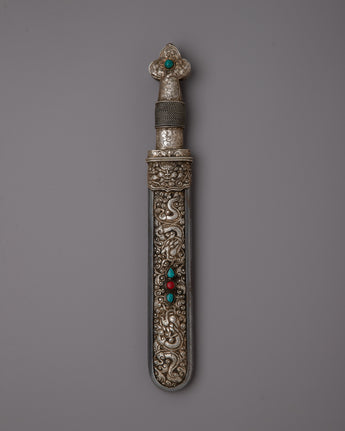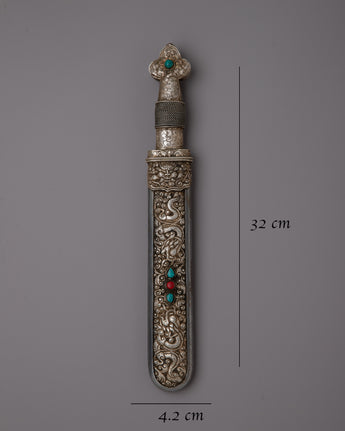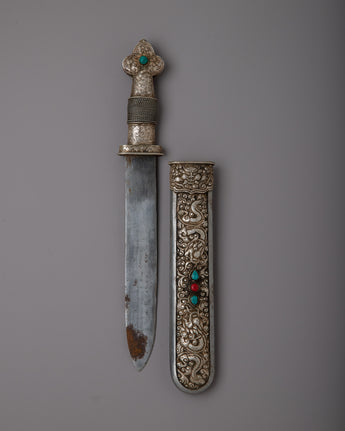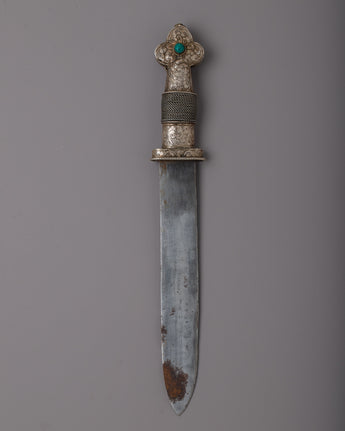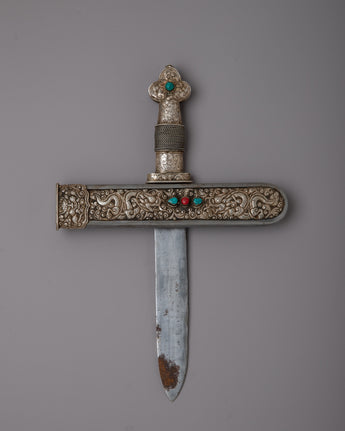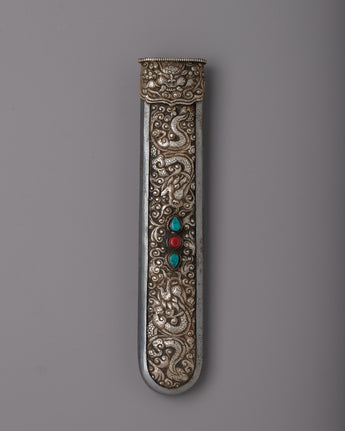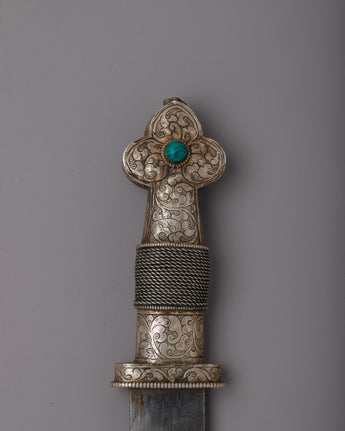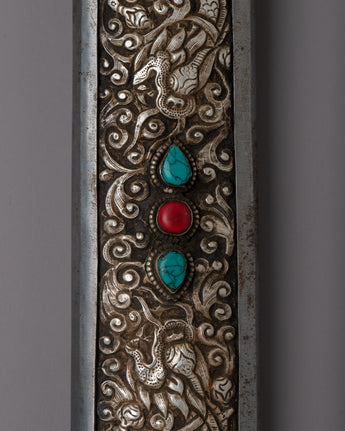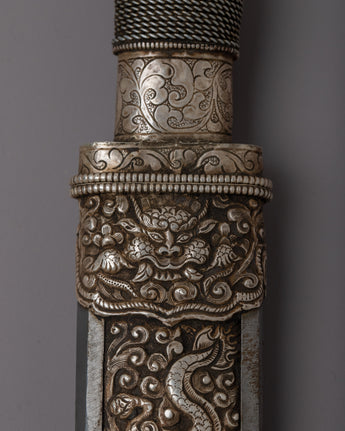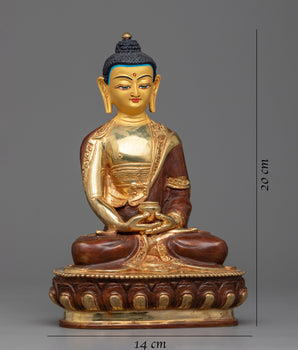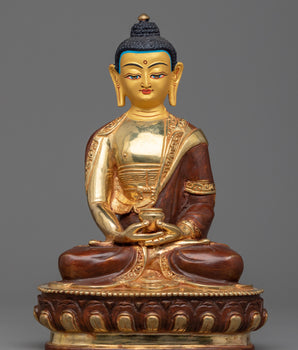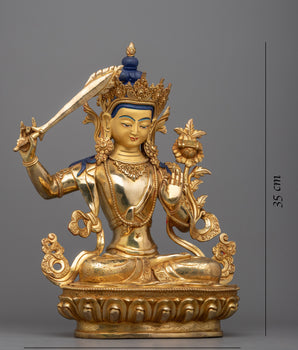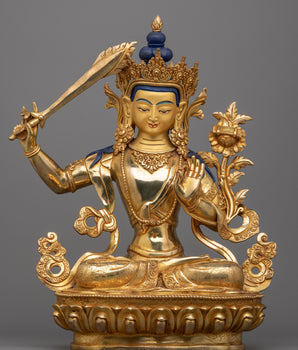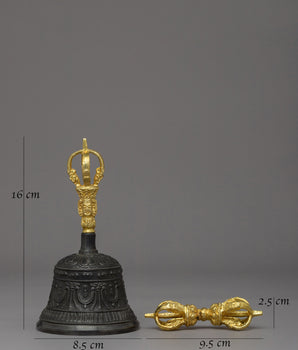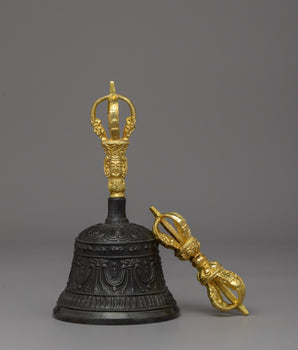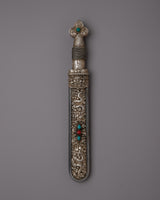
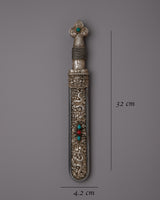
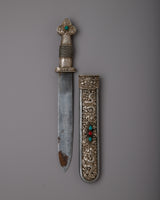
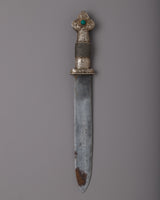
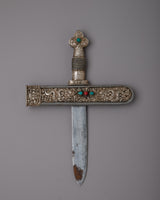
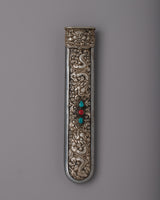
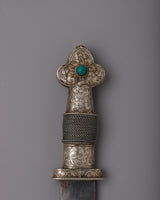
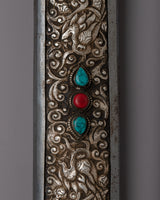
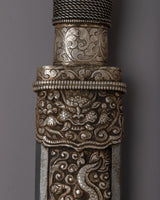
Buddhist Tibet Knife | Sacred Blade Reflecting Spiritual Power and Ritual Significance

100% AUTHENTIC

HANDMADE

FREE SHIPPING
Buddhist Tibet Knife
About Our Buddhist Knife
The Buddhist Tibet Knife is a meticulously made object that perfectly captures Tibetan artisans' rich cultural legacy and expert workmanship. The iron frame of this knife Features delicate silver carvings adorning white metal, displaying ancient Tibetan designs. The handle's resin construction adds strength and visual appeal while completing the harmonized material blend.
This knife, which stands 32 cm tall and weighs 0.276 kg, is perfect for art supporters, collectors, and spiritual people. The Buddhist Tibet Knife is a beautiful decorative item and a useful utility. Its exquisite design and intricate silver carvings make it a mesmerizing addition to any altar, meditation area, or collection. This knife's spiritual importance and artistic beauty enhance any setting, encouraging thoughtful reflection and reverence. It is a significant artifact that represents the painstaking craftsmanship and profound cultural values of Tibetan culture rather than just a pretty decoration.
Introduction to Ritual Dagger
In Tibetan traditions, a Tibetan knife, also called a "phurba" or "kila," has cultural and symbolic meaning. The unique three-sided blade of this ceremonial dagger represents the victory over ignorance, desire, and aversion in Buddhism. Tibetan knives, which are adorned with elaborate carvings and frequently have a tripartite handle that represents different gods, are an essential part of religious rites, ceremonies, and spiritual practices. In addition to their spiritual significance, these knives might have practical uses in daily life, exhibiting in Tibetan communities a combination of deep cultural symbolism and usefulness.
----------------------------------------
Size: 32cm(Height) x 4.2 cm (width)
Weight: 0.276 kg
----------------------------------------
How to set up your own Buddhist Shrine?
-Find a clean, quiet, and uncluttered spot.
-Set up an altar table, and cover it with an altar cloth that calls to you.
-Place your sacred item (statue, thangka, or a picture of Buddha) at the center.


